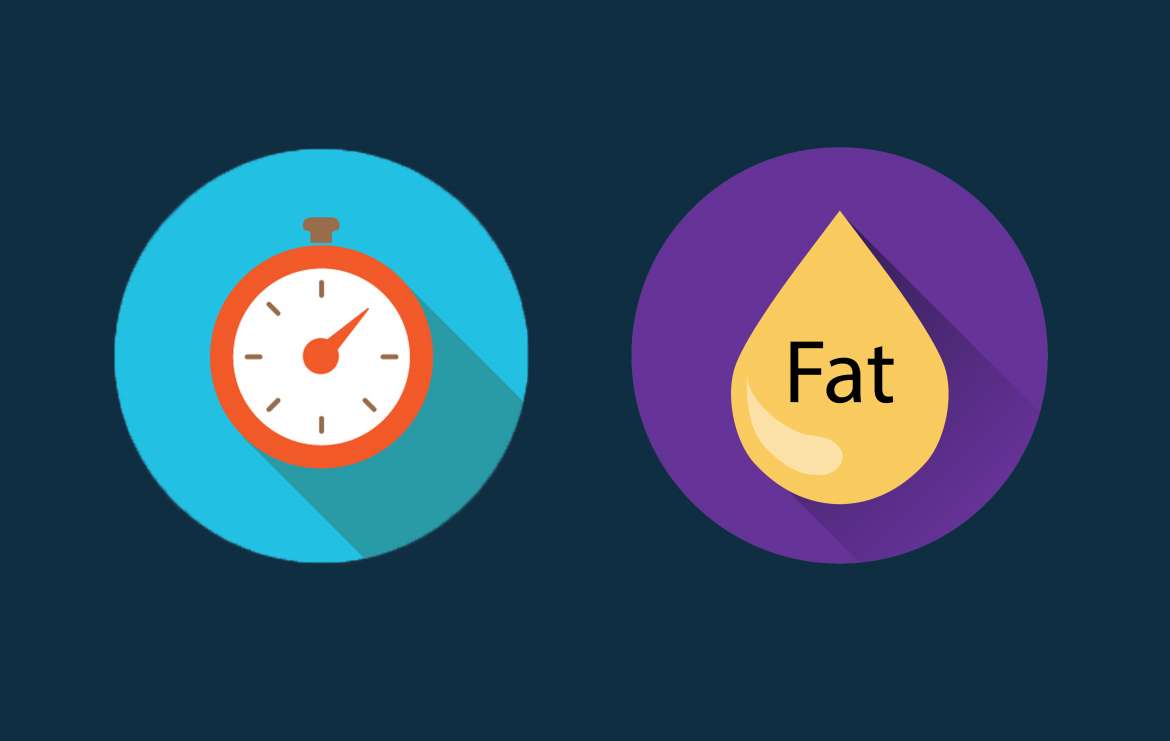Have you ever wondered if your fat timing – so what time of the day you eat dietary fats – will have an impact on your diet success?
Most people usually care only about carb- and protein timing, but fat timing seems to be often forgotten.
So in this post, I want to explain when to best eat fat, if it even matters and how you can use fat strategically in your meal plan.
Fat TIming – Does It Even Matter?
The first thing you have to understand is that most people overestimate the importance of meal timing. You probably heard the myths that breakfast is the most important meal of the day or that you shouldn’t eat after 6 p.m.
Even if these claims were true, which they definitely aren’t, meal timing will only make up around 10% of your overall diet aspect. A lot more important are your calorie balance and macronutrients. For this post, what’s even more interesting is that of the three macronutrients fat timing is the least important.
What this means is that you really shouldn’t freak out about fat timing, but that if you want to build muscle or lose fat, the right timing has its place in your diet.
Let’s first talk about fat timing in regards to exercise. When should you eat fats on your workout days?
In general, it makes sense to eat less fat and more carbs and protein before and after hard exercises. That’s because fat is more difficult for the body to digest, so it also slows down the digestion of anything you eat along with fat.
This is not what you want in your pre-workout meal because you want the carbs and protein to readily available during your training. Therefore, the closer a meal is to your workout the less fat it should have.
For example, 30 minutes before my workout I like to eat an apple and drink a small protein shake, both have practically no fat and are fairly easy to digest. On the other hand, if you like a larger pre-workout meal with more fat, make sure to leave some more time before you hit the gym.
How To Use Fat Strategically In Your Diet
As you can see close to exercise, a large fat intake will give you problems and should usually be avoided. But you can also use fat strategically to your advantage at other times of the day.
Because of its ability to slow down digestion, fat can also be used to time meals over long intervals. For example, if for whatever reason you cannot eat anything for a very long time, let’s say for the next 8 or more hours, a large amount of fat should be eaten in the meal before that interval.
This high fat intake will not only slow down the absorption of carbs and protein, which allows for consistent blood amino acid and glucose levels, the fat will also help stabilize hunger.
That’s also why stakes are so filling. They are high in protein, which is the most filling macronutrient and high in fat, which slows down digestion. Another good application of this strategy is before you go to bed.
If you want to make sure to provide a consistent protein supply to your muscles throughout the night, you can eat a good amount of healthy fats along with your nighttime protein shake.
That way you give your body all the necessary building blocks for muscle growth and maintenance even when you sleep.
So the take-home points are:
– Don’t overestimate the importance of meal timing in general and fat timing in particular
– That said, you can use fat strategically to your advantage
– Eat less of it before and after your workout and more of it before longer fasts



